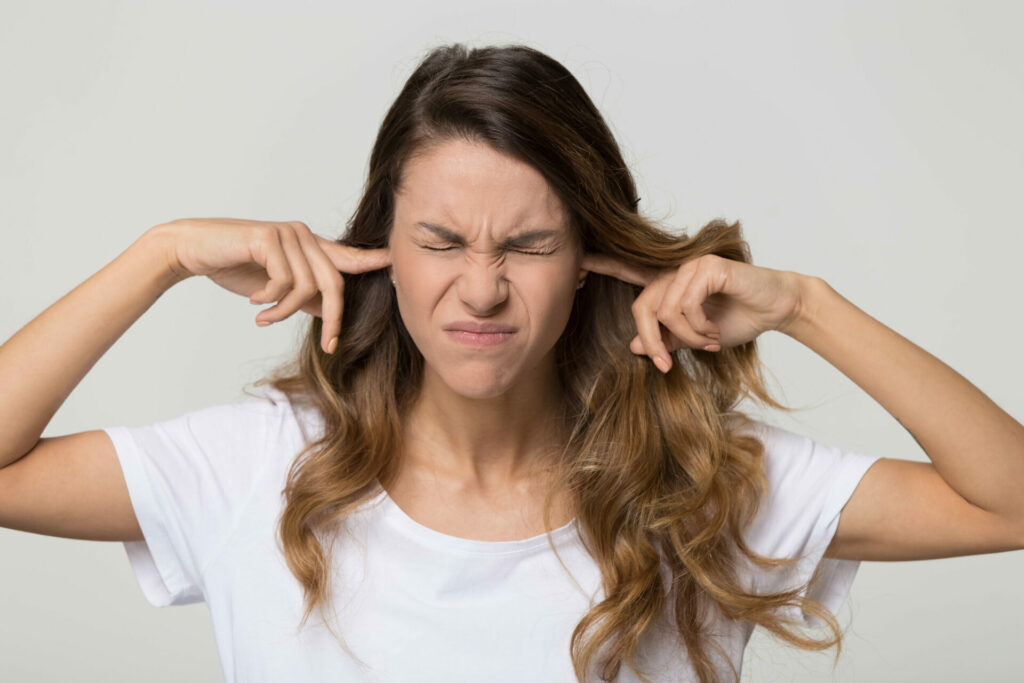OCD avoidance is a common symptom of OCD. It can manifest in many different ways, but the basic idea is that you avoid anything that might trigger your OCD. This can be things like avoiding certain places, people, or objects. It can also be avoiding activities or situations that might make your OCD worse. In this article, we will study the impacts and treatment options for OCD Avoidance. Read further to know the tips for avoiding and helping someone who is suffering from OCD Avoidance.
Contents
What Is OCD Avoidance?
 OCD avoidance is when someone with OCD consciously tries to avoid anything that could trigger their OCD. This may include people, places, thoughts, or activities. For example, someone with OCD might avoid going to the grocery store because they fear they will see someone with a cold and catch it themselves. Or, someone with OCD might avoid watching the news because they fear hearing about a natural disaster and becoming anxious.
OCD avoidance is when someone with OCD consciously tries to avoid anything that could trigger their OCD. This may include people, places, thoughts, or activities. For example, someone with OCD might avoid going to the grocery store because they fear they will see someone with a cold and catch it themselves. Or, someone with OCD might avoid watching the news because they fear hearing about a natural disaster and becoming anxious.
There are many reasons why someone with OCD might start avoiding certain things. In some cases, avoidance may be a way to prevent OCD symptoms from getting worse. In other cases, avoidance may be a way to reduce anxiety in the short term. However, avoidance can also make OCD symptoms worse in the long term.
If you’re struggling with OCD avoidance, it’s important to seek professional help. A therapist who specializes in treating OCD can help you understand your symptoms and develop a treatment plan that works for you.
Signs of OCD Avoidance

There are a few key signs that may indicate someone is avoiding OCD behaviors. These can include:
1. Excessive hand-washing or showering
2. Constantly checking locks or appliances
3. Counting or organizing objects
4. Repeating certain actions or words
5. Avoiding people, places, or things that trigger OCD thoughts or behaviors
If you notice any of these signs in yourself or someone you know, it’s important to seek professional help. OCD can be a very debilitating disorder, but with proper treatment, it can be managed.
Impacts of OCD Avoidance

It’s no secret that OCD can have a pretty major impact on your life. But what you may not realize is that avoiding your OCD can also have some pretty serious consequences. Here are a few things to keep in mind if you’re thinking about avoiding your OCD:
1. You could end up making your OCD worse.
When you avoid your OCD, you’re essentially telling your brain that whatever it is you’re trying to avoid is something to be feared. This can make your OCD stronger and more resistant to treatment.
2. Avoidance can lead to depression and anxiety.
When you’re constantly avoiding your OCD, it’s easy to start feeling down about yourself. You may feel like you’re not good enough or that you’ll never be able to overcome your OCD. This can lead to depression and anxiety, which are both very serious mental health conditions.
3. You could miss out on important aspects of life.
If you’re avoiding your OCD, chances are you’re also avoiding things in life that you enjoy or that are important to you. This can lead to feelings of isolation and loneliness, as well as a sense of missing out on what everyone else
Treatment Options For OCD Avoidance
There are many different ways to treat OCD avoidance. Some people may need medication to help them deal with their anxiety, while others may require therapy or a combination of both. It is important to work with a mental health professional to find the treatment plan that is right for you.
Medications
 There are many different types of medications that can be used to treat OCD avoidance. Some of the most common include SSRIs, SNRIs, and tricyclic antidepressants. These medications can be very effective in reducing anxiety and helping people to overcome their OCD avoidance. However, it is important to remember that these medications can have side effects and should be used under the supervision of a qualified healthcare professional.
There are many different types of medications that can be used to treat OCD avoidance. Some of the most common include SSRIs, SNRIs, and tricyclic antidepressants. These medications can be very effective in reducing anxiety and helping people to overcome their OCD avoidance. However, it is important to remember that these medications can have side effects and should be used under the supervision of a qualified healthcare professional.
Therapy
Different types of therapy can help people with OCD avoidance. Some people may benefit from cognitive behavioral therapy, which can help them to change their thinking patterns and behaviors. Others may benefit from exposure and response prevention therapy, which can help them to slowly and gradually expose themselves to the things they are avoiding. Medication can also be helpful for some people in managing their OCD avoidance.
Support Groups
There are many OCD support groups available both in-person and online. These groups provide a space for people with OCD to share their experiences and offer support to one another. Many people find that connecting with others who understand what they are going through is very helpful in managing their OCD.
Self-Care

If you have OCD, you know how important it is to find healthy coping mechanisms and activities that help you manage your condition. In this article, we’ll share some self-care activities that can help reduce your OCD symptoms and help you to avoid potential triggers.
Eating Good Food
One self-care activity that can help with OCD avoidance is eating good food. Eating nutritious meals helps to keep the body and mind healthy, which can in turn help to reduce anxiety and stress levels. When choosing foods to eat, it is important to focus on those that are high in protein and low in sugar. Foods such as lean meats, vegetables, and fruits are all excellent choices. It is also important to drink plenty of water throughout the day to stay hydrated.
Regular Exercises
There are many different types of OCD, but one of the most common is avoidance OCD. This type of OCD can make it difficult to do things that you enjoy or that are good for you, like exercising. But avoiding exercise can make your OCD worse. That’s why it’s important to find ways to keep yourself active despite your avoidance.
Here are some tips for getting regular exercise despite OCD avoidance:
1. Find an activity that you enjoy. If you don’t enjoy the activity, you’re more likely to avoid it. So, find something that you love to do, whether it’s biking, hiking, swimming, or something else entirely.
2. Set small goals. If the thought of exercising for 30 minutes is too overwhelming, start with 5 or 10 minutes. Once you reach your first goal, you’ll be more motivated to keep going.
3. Exercise with a friend. Having someone to exercise with can make it more enjoyable and less likely that you’ll bail on your workout.
4. Take a break if you need to. If you start to feel anxious or like you’re not enjoying
Practise Relaxation Techniques
Relaxation techniques can be a valuable tool in managing OCD avoidance. While there are many different ways to relax, some common methods include:
-Deep breathing: Take slow, deep breaths in through your nose and out through your mouth. Focus on the sensation of the breath moving in and out of your body.
-Progressive muscle relaxation: Starting with your toes, tense and then release each muscle group in your body, working your way up to the top of your head.
-Imagery: picturing a peaceful scene or memory in your mind can help to ease anxiety and promote relaxation.
-Yoga: A gentle yoga practice can help to stretch and release tension from the body.
Regular practice of relaxation techniques can help to reduce anxiety and manage OCD avoidance. If you find yourself feeling particularly anxious or overwhelmed, take a few minutes to stop and focus on your breathing or another relaxation technique.
Practice Your Hobbies
Hobbies can provide a much-needed distraction from the obsessions and compulsions of OCD. When people with OCD are feeling particularly anxious or stressed, they can turn to their hobbies as a form of self-care.
Hobbies can also help people with OCD to connect with others who share their interests. This can provide valuable social support and reduce feelings of isolation.
If you have OCD, make sure to choose hobbies that you enjoy and that don’t trigger your obsessions or compulsions. Practice your hobbies regularly, and use them as a form of self-care when you’re feeling stressed or anxious.
How To Avoid OCD Avoidance?

If you suffer from OCD, you know that avoidance is one of the biggest obstacles to overcome. After all, why would you want to face your fears head-on when you can just avoid them altogether?
But avoidance only leads to more anxiety and more compulsions. It’s a never-ending cycle that can be hard to break out of.
These are some of the tips to avoid OCD Avoidance:
Identify Your Triggers
If you’re someone who struggles with OCD avoidance, it’s important to identify your triggers. What are the things that drive your anxiety and make you want to avoid certain situations? Once you know what your triggers are, you can start to work on addressing them. This may involve Exposure and Response Prevention (ERP) therapy, which is a type of cognitive behavioral therapy that’s specifically designed to help people with OCD. If you can identify your triggers and start to work on exposure therapy, you’ll be well on your way to overcoming OCD avoidance.
Challenge Your Thoughts
When you’re facing OCD, avoidance can seem like the easy way out. But avoidance only reinforces your fears and makes them worse in the long run. The best way to overcome OCD avoidance is to challenge your thoughts.
Start by asking yourself why you’re avoiding the situation. What are you afraid of? Once you identify your fear, you can start to challenge it. Ask yourself if there’s any evidence that supports your fear. Chances are, there isn’t.
Then, take small steps to expose yourself to the situation you’re avoiding. Start with something easy for you, and work your way up. For example, if you’re afraid of germs, start by washing your hands for 20 seconds. Then, move on to touching door handles and doorknobs. With each exposure, your fear will start to lessen and you’ll gain more confidence in your ability to cope with the situation.
Build Up Your Tolerance
If you’re someone who struggles with OCD, you know that the avoidance behaviors can be incredibly strong. It’s hard to resist the urge to do things that will help you feel better in the moment, even if you know they’re not helpful in the long run. But avoidance only reinforces your fear and makes your OCD stronger. So how do you overcome it?
One way is to start small. Choose one situation that you typically avoid and commit to facing it for just a minute each day. It might be something as simple as touching a doorknob or using a public restroom. Gradually increase the amount of time you can tolerate the situation until it no longer feels so overwhelming.
Another approach is to expose yourself to your fear in a safe and controlled environment. For example, if you’re afraid of contamination, you might practice touching objects that you consider to be dirty. Or if you’re afraid of heights, you might start by looking out a window from the ground floor, then gradually work your way up to higher floors or even outside on a rooftop.
The key is to challenge your avoidance behaviors little by little until they no longer control your life. With patience and practice, you can learn to overcome
Seek Professional Help
There are many ways that people with OCD can get help for their condition. One of the most important things to do is to seek professional help. A therapist who specializes in OCD can help you understand your thoughts and behaviors, and develop a treatment plan to address them.
OCD is a treatable condition, but it can be difficult to overcome on your own. Therapists who specialize in treating OCD can provide you with the tools and support you need to make progress. If you think you might benefit from professional help, talk to your doctor or mental health provider about finding a therapist who can help you.
Helping Someone With OCD Avoidance

People with OCD often go through a lot of avoidance behaviors. They might try to avoid anything that triggers their OCD, which can make it hard for them to function in everyday life. But there are ways to help someone with OCD avoidance. These are some tips on how to help someone with OCD avoid triggering situations and how to support them in their recovery.
Be Patient and Understanding
If you’re close to someone with OCD, you may find yourself in the role of caregiver or support system. It’s important to be patient and understanding with your loved ones, as they may not be able to control their compulsions or behaviors. Avoiding certain situations or places can be a major part of OCD, and it can be difficult for someone to break out of that cycle. If you can be supportive and understanding, you can help your loved ones manage their OCD and avoid potential triggers.
Listen To Them
If you know someone with OCD who is struggling with avoidance, the best thing you can do is to listen to them. Avoidance can be a difficult and frustrating symptom to deal with, and your loved one may feel like they are stuck in a never-ending cycle of fear and anxiety. Let them know that you are there for them and that you want to help them find a way to cope with their OCD. You can also offer to go with them to see a therapist or doctor who can help them develop a treatment plan.
Encourage Treatment
If you or someone you know is struggling with OCD, it’s important to encourage them to seek treatment. While avoidance may seem like an easy way to deal with the disorder, it can make things worse. OCD can be a very debilitating disorder, but there is hope. With proper treatment, many people can lead full and productive lives. If you know someone who is avoiding treatment for OCD, encourage them to seek help from a qualified mental health professional.
Give Them Space
OCD can be a very isolating disorder, and avoidance only makes it worse. If you have a friend or loved one who is dealing with OCD avoidance, one of the best things you can do is give them space. Let them know that you’re there for them and that you support them, but don’t push them to talk about their OCD or to face their fears. Just being there for them and providing a listening ear can be a huge help.
Provide Them Sources
If you know someone who is struggling with OCD avoidance, one of the best things you can do is provide them with resources. Showing them that there are other people out there who understand what they’re going through can be incredibly helpful.
There are several great blogs written by people with OCD who share their experiences and offer advice to others.
Conclusion
There are many different types of OCD, but avoidance is a common symptom. If you have OCD, you may avoid people, places, or things that trigger your obsessions. This can make it difficult to go about your daily life. However, there are treatments available that can help you manage your OCD and live a fulfilling life.
Hope this article was of help to you! If you are suffering from OCD avoidance, you may seek help from Therapy Mantra. We have a team of highly trained and experienced therapists who can provide you with the tools and skills necessary for overcoming OCD avoidance. Contact us today to schedule an online therapy or download our free OCD treatment app on Android or iOS for more information.


